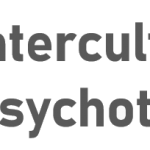Neurosequential Model of Therapeutics
- Home
- Metoder
- Neurosequential Model of Therapeutics
Promote healing of children impacted by trauma through their families, schools, and communities
This Neurosequential Model of Therapeutics (NMT) approach to therapy of traumatized
children has been developed by Dr. Bruce Perry, a leading expert in early childhood trauma. Dr. Perry and the staff at Child Trauma Academy in Texas have created a “developmentally sensitive, neurobiologically informed approach to clinical work. ”This approach is based on a knowledge of brain development, which includes these brain basics:
Brains develop from the “lower” parts that mediate simple functions like breathing, heart rate and body temperature to the “higher” parts that mediate complex functions like language and abstract thinking.
The majority of brain organization takes place in the first four years of life. Because most of the brain’s core neural networks and primary associations develop at such a young age, early developmental trauma and neglect have a disproportionate influence on the brain’s organization and functioning. In addition to early childhood trauma, children exposed to intrauterine insults (drug exposure or even maternal stress) alters their brain chemistry and brain structure.
This model recovers and repairs each part of a child’s brain in a specific, phased and effective order.
Who?
Do you have a child or adolescent who struggles to make consistent progress? Have you been desperately trying to reach your child/adolescent to get them on the “right path” to no avail? Did you yourself grow up feeling challenges to regulate or connect with others and are looking for a better understanding? NMT may be an appropriate treatment framework for you.
Believe it or not, your child is doing the best they can with what they have. Extreme traumatic stress and/or pervasive difficult early life experiences alter brain development, equipping kids with limited skills to manage their daily life and relationships. The result of this can feel terrible, like your child is attacking you personally. NMT can help provide a better understanding of what is going on, as well as practical ways to help manage what is happening so that your child can be more reachable to you, better able to benefit from your parenting, and more capable of leading an overall healthy life.
What happens in an assessement of a child/adolescent?
We always begin our relationship with you by offering a brief therapeutic needs assessment. In most situations, this assessment takes place over one to two appointments and includes a meeting with the parents alone, and a meeting with the child and parents together. Sometimes the child is invited to meet with the therapist alone too. When the difficulties are complex, we will offer the child and family an extended assessment, and we will explain exactly what is involved.
Our assessment aims to:
- Understand the nature of your child’s difficulties
- Explore any concerns about safety
- Develop atherapeutic understanding of the problem (known as a ‘formulation’)
- Make recommendations for atherapeutic treatment plan
Families have told us that our assessments often shed new light on the problems they have brought to us, which can create change and hope early on in our work with them. We see the assessment as the start of treatment, because understanding the difficulties is always the first step towards change

